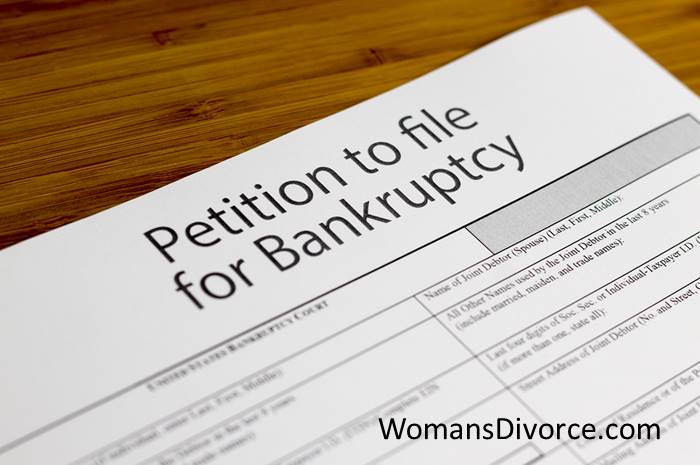- Home
- Who Gets What?
- Divorce and Bankruptcy
When Divorce and Bankruptcy Collide
Unfortunately, divorce and bankruptcy seem to go hand-in-hand for some people.
This is often due to the financial stresses brought on when a marriage ends. In this article, you'll find out why the two often occur in tandem, what the impact can be, and whether you should file before or after your divorce.
Financial Stresses of Divorce
It's no secret that divorce is an overwhelming stressful event in most people's lives. Besides lawyer and court costs, you and your spouse will probably be expected to cover the expenses of two households rather than just one. And, if one spouse must now find a new job, child care costs may come into play.
Divorce and bankruptcy statistics:
- Statistics on bankruptcy filing show that roughly two-thirds of the people who file for bankruptcy do so because of medical hardships. Other reasons include an unaffordable mortgage, overwhelming debt, excessive spending, and job loss. This suggests that such financial stressors may frequently lead Americans to file bankruptcy.
- Depending on the laws of your state (community property or equitable distribution), you may find yourself owning less property and more debt than you did before your marriage.
- Many divorces today include orders for alimony or child support. For people struggling to get by on just one income, their paycheck just won't stretch far enough to meet these obligations and still be able to pay the other bills.
Bankruptcy before Divorce

If your spouse starts bankruptcy proceedings before the judge finalizes your divorce, you might want to think about jointly filing for bankruptcy, especially if the majority of your debt obligations are in both your names. Because a creditor is not considered a party to a divorce agreement, you will still be responsible for the joint debts, even if your husband is the only one declaring bankruptcy.
If you jointly file for bankruptcy before your divorce, you'll be able to avoid many of the headaches involved in negotiating the division of assets and debts because most of this will have been settled by the bankruptcy proceedings. Also, a couple can save a significant amount of money in legal fees if both spouses file for bankruptcy together, as opposed to filing separately after divorce.
It's important to note that a joint bankruptcy filing is typically not available to divorced couples, even if much of their debts are held jointly. For this reason, if you are contemplating bankruptcy and haven't yet filed for a divorce, you should consider consulting with a bankruptcy lawyer before dissolving your marriage.
Bankruptcy after Divorce
So, how could bankruptcy potentially help struggling divorcees?
- Chapter 13 Bankruptcy: This type of personal bankruptcy allows petitioners a period of three to five years to get current on their past-due debts by making regular payments in a repayment plan. It tends to work best for people that have a dependable income source and/or significant non-exempt assets or property they want to hold on to.
- Chapter 7 Bankruptcy: This type of personal bankruptcy offers petitioners a complete discharge of many unsecured debts (debts not attached to any property). Keep in mind, though, that how the debts are designated by the divorce court may not hold up in a bankruptcy court. For example, if a spouse is assigned a joint debt in the divorce and then files for Chapter 7 bankruptcy, the creditors can still come after the other spouse for repayment.
Because of the possibility of one spouse being held responsible for debts which were assigned to the other spouse during divorce, it's important to contact your ex-spouse if you're considering a bankruptcy filing.
Bankruptcy Can't Eliminate All Debts
If you saw your income decrease after the terms of your divorce were settled, you may be worried about keeping up with support payments as well as your mortgage/rent and regular bills. But the place to modify the terms of your divorce is probably in the divorce court, not the bankruptcy court.
The following debts are not dischargeable in bankruptcy, meaning that filing bankruptcy will not likely relieve you of your responsibility to pay:
- child support
- alimony/spousal maintenance
- student loans
- most tax debt
- some criminal fines and penalties
If you need help in resolving any of the above debts, don't despair: bankruptcy may still offer you relief by possibly excusing you from other debts so you have enough money to cover your support or maintenance payments.
If you'd like to learn more about how Chapter 7 or Chapter 13 bankruptcy could help you, you may want to speak with a bankruptcy lawyer in your area. (*This post contains affiliate links for which we receive compensation.)
Below are more articles to help you get your finances under control after your divorce:
